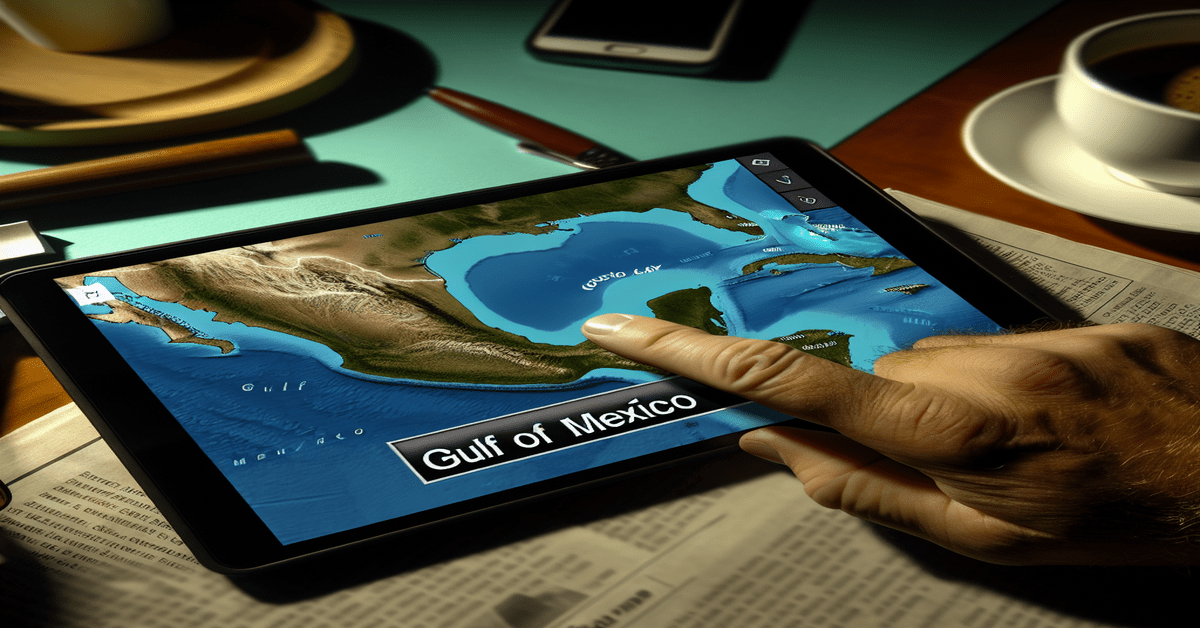Google Maps Sparks Controversy with Potential Renaming of the Gulf of Mexico
In a move that has raised eyebrows and sparked discussions across various industries, Google is reportedly considering renaming the Gulf of Mexico to the “Gulf of America” on its widely-used mapping service, Google Maps. This potential change, as reported by The Telegraph on January 28, 2025, could have far-reaching implications for geography, culture, and geopolitics.
A Name Change with Significant Implications
The Gulf of Mexico, a body of water bordered by Mexico, the United States, and Cuba, has held its name for centuries. The proposed renaming to the “Gulf of America” would not only alter the geographical identity of this region but also potentially reflect broader shifts in geopolitical dynamics and cultural perceptions.
While the exact reasons behind Google’s consideration of this change remain unclear, it is likely that various factors, such as user feedback, political pressures, or evolving cultural norms, could be influencing the decision. However, it is crucial to approach such a significant change with careful consideration and sensitivity to the historical and geographical significance of the current name.
Balancing Innovation and Respect for Tradition
As a leading technology company, Google has often been at the forefront of innovation and has played a significant role in shaping how we perceive and interact with the world around us. Google Maps, in particular, has revolutionized the way we navigate and explore our surroundings, providing valuable information and insights to millions of users worldwide.
However, with great influence comes great responsibility. While Google’s potential renaming of the Gulf of Mexico may align with certain goals or agendas, it is essential to consider the broader implications and potential unintended consequences of such a change.
The Gulf of Mexico holds deep historical, cultural, and economic significance for the countries and communities that surround it. The name itself carries a rich heritage and has been an integral part of the region’s identity for generations. Any alteration to this name should be approached with utmost care, taking into account the perspectives and sensitivities of all stakeholders involved.
Encouraging Open Dialogue and Collaboration
As this potential change sparks discussions across various industries, it presents an opportunity for professionals to engage in meaningful dialogue and collaboration. Geographers, historians, cultural experts, and policymakers alike should come together to assess the implications of such a change and provide informed insights to guide the decision-making process.
It is crucial to foster an environment where diverse perspectives can be heard and considered, ensuring that any changes made are grounded in a deep understanding of the region’s history, culture, and geopolitical context. By encouraging open and inclusive discussions, we can work towards finding a path forward that respects tradition while embracing progress.
The Need for Transparency and Accountability
As a prominent tech giant, Google has a responsibility to be transparent about its decision-making processes and to be accountable for the impact of its actions. If the company indeed moves forward with renaming the Gulf of Mexico, it should provide clear and compelling reasons for doing so, backed by robust research and consultation with relevant stakeholders.
Moreover, Google should be prepared to address any concerns or criticisms that may arise from this change, demonstrating a willingness to engage in constructive dialogue and make adjustments if necessary. By maintaining an open and responsive approach, Google can build trust with its users and the wider community, even in the face of controversial decisions.
Looking Ahead: Navigating Change in a Evolving World
The potential renaming of the Gulf of Mexico by Google Maps serves as a reminder of the ever-evolving nature of our world and the role that technology plays in shaping our perceptions and experiences. As professionals across various industries, it is our responsibility to stay informed, engaged, and proactive in navigating these changes.
By staying attuned to industry trends, actively participating in discussions, and collaborating with diverse stakeholders, we can contribute to shaping a future that balances innovation with respect for tradition. Whether through sharing insights, engaging in research, or advocating for responsible decision-making, each of us has a role to play in ensuring that changes, such as the potential renaming of the Gulf of Mexico, are approached with care, consideration, and a commitment to positive impact.
As we move forward, let us embrace the opportunities for growth and learning that come with change, while remaining grounded in the values of respect, transparency, and accountability. Together, we can navigate the complexities of our evolving world and work towards a future that benefits all.
#GoogleMaps #GulfOfMexico #GulfOfAmerica #GeographicalNaming #CulturalImplications
-> Original article and inspiration provided by James Titcomb
-> Connect with one of our AI Strategists today at ReviewAgent.ai


